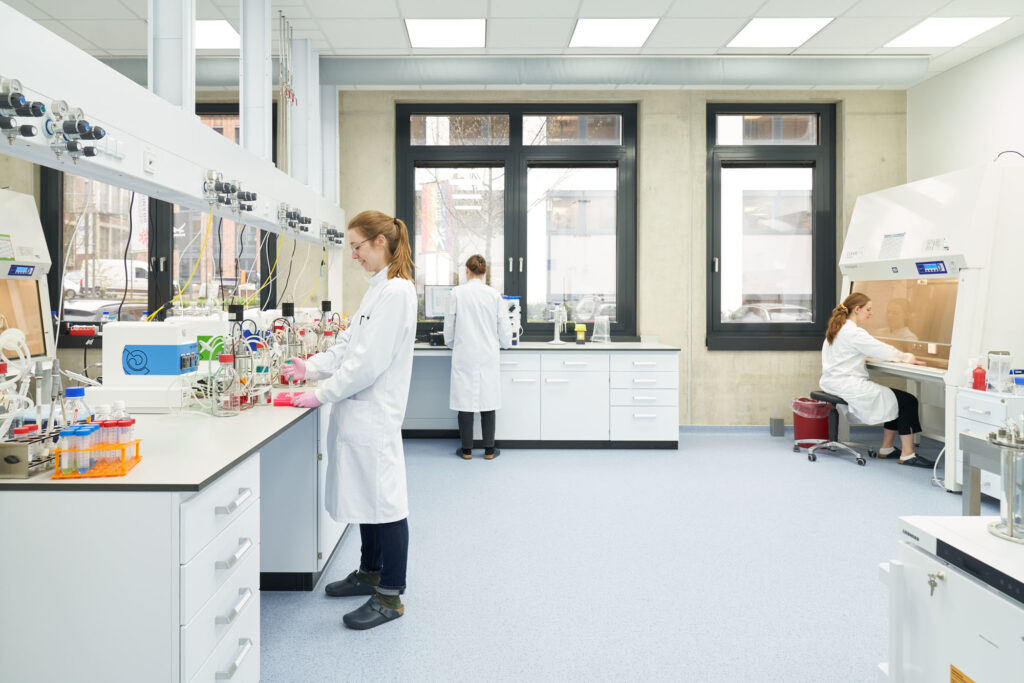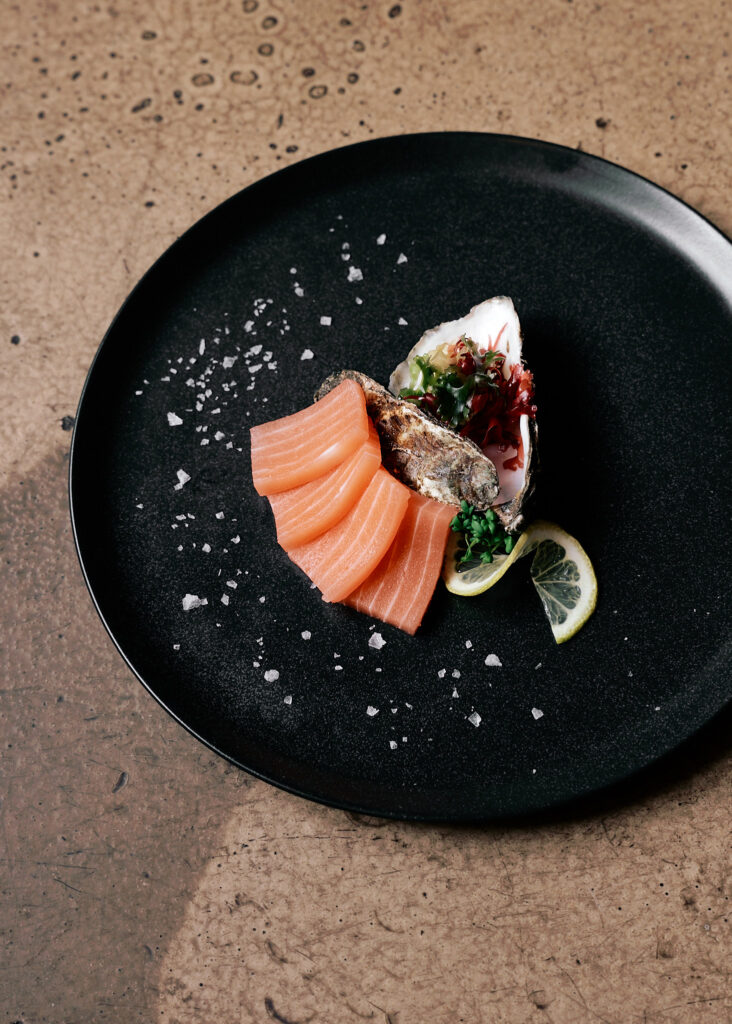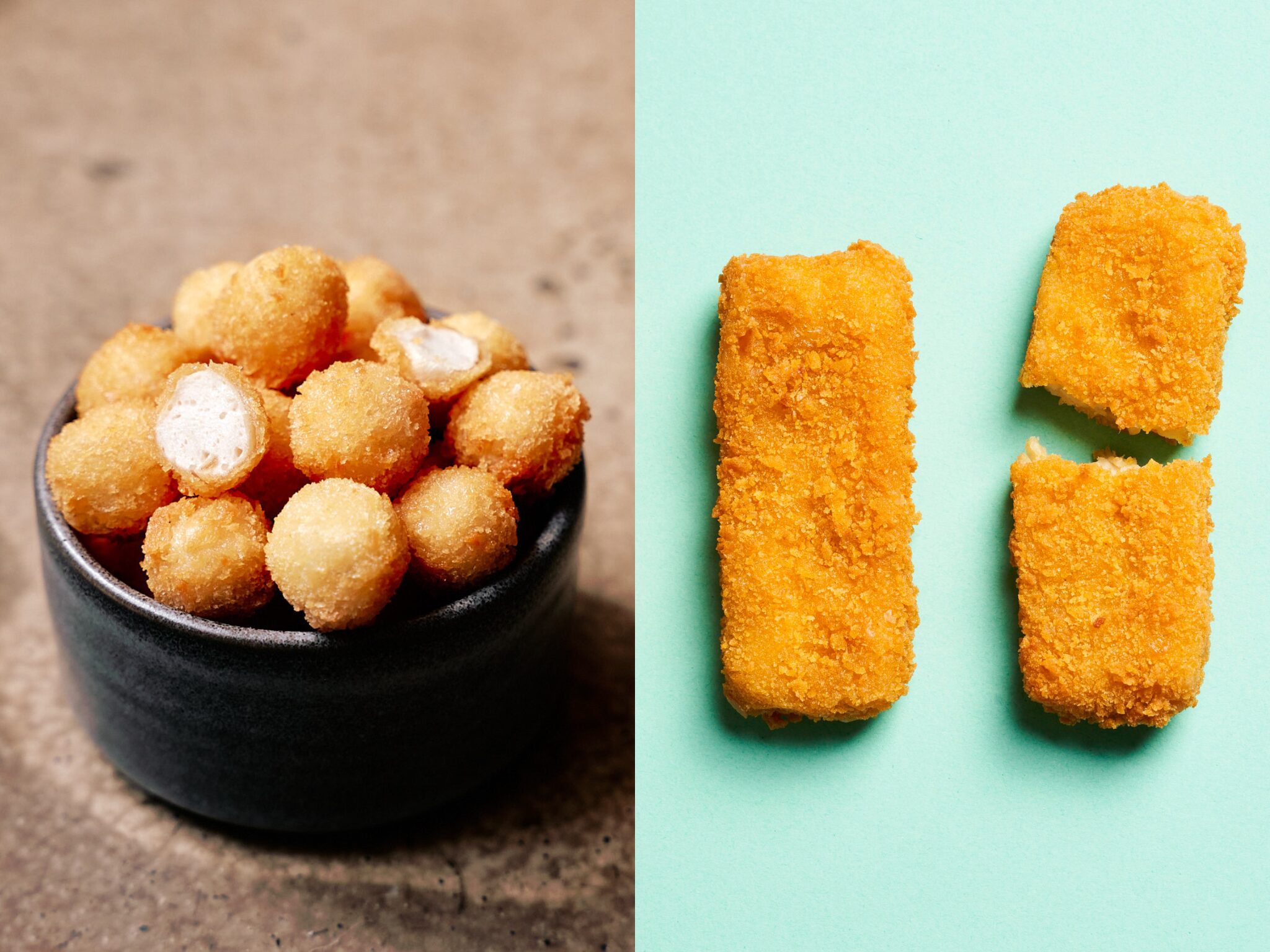Bluu Seafood Opens Europe’s First Cultivated Seafood Facility, Eyes Singapore Launch in 2025
5 Mins Read
German cultivated fish startup Bluu Seafood relocated to Hamburg with the opening of a large-scale pilot plant to produce its salmon and rainbow trout, ahead of an expected launch in Singapore early next year.
Bluu Seafood has opened Europe’s first dedicated facility for cultivated seafood production, moving its headquarters from Lübeck to Hamburg as it prepares for a 2025 market launch in Singapore.
It comes 10 months after the company closed a $17.5M Series A funding round to enhance its R&D efforts and initiate production of its cultivated salmon and rainbow trout, with its first products being fish balls and fingers (it is also working on prototypes for salmon sashimi and trout fillets).
“With the facilities at our new site, we are laying the foundations to supply the first markets,” said Bluu Seafood co-founder and co-CEO Sebastian Rakers, who founded the startup with managing director Simon Fabich in 2020. “In Hamburg, we have the ideal conditions to continue to grow and continuously reduce production costs.”
Bluu Seafood to target non-EU countries first

Sprawling 2,000 sq m, the new facility marks Bluu Seafood’s departure from laboratory scale and marks the next step in its commercialisation journey. The Hamburg plant will give it access to customised research, production, and office space, and house fermentation tanks that have a current capacity of 65 litres.
The company is planning to scale up to 500 litres by the end of this year, with a further expansion to the full 2,000-litre capacity scheduled for 2025. This will allow the producer to cultivate muscle, fat and connective tissue cells from Atlantic salmon and rainbow trout in much larger quantities than before.
With the optimal temperature, oxygen supply and nutrients, the animal cells can grow and differentiate in the same way they do in fish – but the advantage, of course, is that Bluu Seafood’s cultivated products are free from the heavy metals and microplastics found in wild-caught fish and much more planet-friendly, while retaining the flavour, nutritional content and cooking functionality of conventional seafood.
So far, no company has commercialised cultivated seafood, with US players Upside Foods and Eat Just having sold cultivated chicken in US restaurants, and Australia’s Vow currently selling its newly approved cultivated quail in Singapore (Eat Just has also previously done so in the island nation). Meanwhile, the only other company to have been cleared by regulators to sell cultivated meat is Israel’s Aleph Farms, which will soon launch its beef product at restaurants in its home nation.
But Bluu Seafood is hoping to join that list with its salmon and trout products in Singapore by early 2025, having already filed for regulatory approval there. Rakers confirmed the company is in talks with the FDA in the US too. “As a European company, the EU is certainly on our radar,” he added. “However, considering that the EU approval process with its 27 members is a lot more complex, we will probably focus on European countries outside the European Union first – for example, the UK and Switzerland.”
Aleph Farms has made its application in those two countries as well, with the conversation around cultivated meat heating up particularly in the UK, given pet food companies Meatly and OMNI expect the greenlight for their cultivated chicken for cats within the next three months.
Upside Foods, Eat Just and Vow have all entered the market through foodservice partnerships, and that is the approach Bluu Seafood will take too. “At the market entry point, we will only have a very limited number of products available. We will therefore take a careful positioning strategy, and initially work exclusively with well-known restaurants, chefs and influencers,” said Rakers. “Rollout with exclusive retail partners will follow thereafter.”
Enduring the waves of legislative and financial challenges

The alternative seafood and cultivated meat sectors have been facing a bunch of headwinds as of late. One of the biggest bottlenecks of the industry – alongside scale – is production cost. Estimates suggest cultivated meat won’t be on par with the price of meat until 2030, but Bluu Seafood is more optimistic about things.
“If the scalability and market conditions are favourable, we will be able to offer cultivated fish at wholesale fish prices in as little as three years,” Rakers said.
It would mark a major milestone for an industry that has suffered from a lack of investment, increased financial strains, and greater political and legal pressure. In recent months, fellow German alt-seafood startup Ordinary Seafood and San Francisco-based New Wave Foods ceased operations, citing a bleak funding landscape and market challenges. In February, Californian cultivated seafood player Finless Foods reportedly initiated a second round of layoffs in less than 12 months. And last month, Singapore’s Umami Bioworks and Shiok Meats merged as a marker of consolidation in the category.
At current rates, overfishing could lead to a collapse of global fisheries by 2048, but in the US, the Supreme Court is considering overturning a doctrine that would enable unchecked overfishing and remove accountability from the sector, leaving global waters open to exploitation.
Rakers believes these developments are a sign that it’s now “a matter of making the right decisions, focusing on strong points and delivering proof of scalability for the technology used” for the cultivated seafood industry. “The biggest challenge currently is the lack of clear guidance and regulations for this specific area in many markets, as the industry is new, and the creation of regulations and guidance takes time,” he said.
This is evident in places like the EU and the US, where legislators aren’t just slow on progress, but are actively going in the opposite direction by attempting to ban cultivated meat. Italy has already done so, and Florida is close to it. “The legislative drive in some regions of the world to curb food innovation is mostly driven by industry protectionism but does not necessarily represent a wider public opinion,” Rakers suggested. “Legislators need to trust scientific judgement and updated food safety regulations for cultivated proteins. Thereafter, it is people’s individual decision to buy the product or not.”
There are positive signs too: the Indian government, for example, is working with a local startup to produce cultivated seafood and is reportedly developing a regulatory framework for the sector. South Korea has also established its framework and is inviting applications now.
“We can already see improvements in that respect, but of course not at the speed the industry develops and would wish for,” said Rakers. “Because of this lack of guidance and regulations applications are complicated and it takes a long time to go to market, which is crucial, especially for startups.”
He continues: “One aspect to improve this situation would be for the respective authorities to allocate more resources and engage in one-to-one contact with the industry’s players to clarify questions and safety needs as quickly as possible. FDA and SFA [Singapore Food Agency] take this approach quite successfully.”



